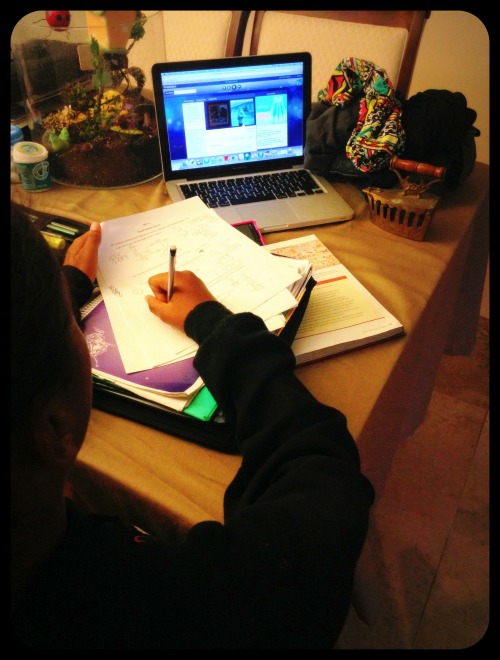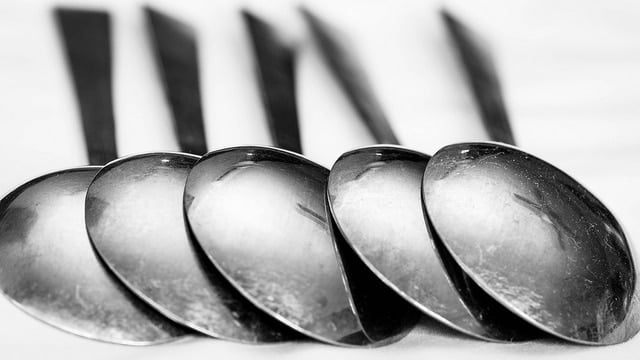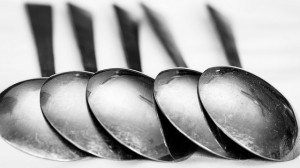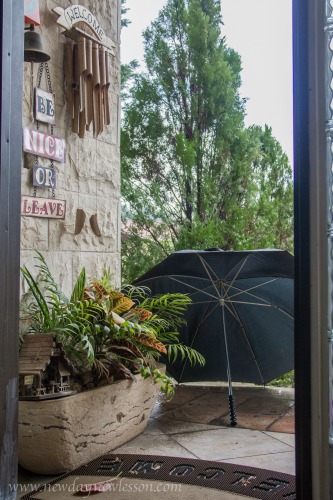
by Katinka | Jun 16, 2014 | 2014, Awareness, Belgium, Death and Dying, Government, Health, Hospital, Human Rights, Life Lesson, Loss of Child, Motherhood, Parenting, Penguin and Panther, Politics, World Motherhood
 I’m going to ask you all to journey with me into an imaginary world. A parallel universe if you will. This world bears some similarity with the one of H.G Wells’ Eloi from his book The Time Machine. And possibly something from Suzanne Collins’ Hunger Games as well.
I’m going to ask you all to journey with me into an imaginary world. A parallel universe if you will. This world bears some similarity with the one of H.G Wells’ Eloi from his book The Time Machine. And possibly something from Suzanne Collins’ Hunger Games as well.
It’s a nice world to live in, really. You are relatively happy there. You get to spend a great deal of time with your child and you generally feel fulfilled. There is this small matter of the alien usurpers that govern the world but in daily life, you don’t even notice them. Afterall, they did manage to rule out world hunger and poverty, so at times you are even grateful to them.
Every once in a while, however, the aliens impose their Lottery. It is a constant little threat that buzzes at a corner of your head. The Lottery picks out subjects at random, which are then summoned to the alien High Office. No one really knows what happens there but everyone agrees it’s nasty. Sometimes the subjects are adults, sometimes children. Even babies don’t escape the Lottery. But it has never happened to you or anyone you know. So, you are quite comfortable and don’t even mind following the Lottery outcomes.
Until that fatal Lottery Day. You don’t even know your child’s name is picked until you see his hypodermal chip changing colour. At first you try to deny it. It has to be a play of the light. A mistake, maybe. But then it is on the news as well. Your son is the new subject and he hasn’t come in yet like he should have. The aliens are coming for him.
Being accustomed to human habits, they allow you to go with him, although they advise against it. Of course you go. All parents do, the aliens say. Humans never listen to reason.
In the following weeks, your child is poked around. Needles, infusions and pills. He has to swallow big magnet-like sensors and gets extra chips. Wires go in and out. He is brave and endures. You can see his anxiety, but you assure him it should be over soon. That’s what they tell you anyway.
Then the pain comes. And his screams. Oh, his screams. You kiss his forehead, telling him to hold on. The aliens don’t give in to your pleas to stop. To please stop.
The pain comes and goes. In between, he is exhausted, but brave, still. You believe he is so much braver than you are.
One day, the aliens take you aside for a little talk. They inform you your child isn’t going to be one of those subjects that gets to go home after a memory wipe. Their studies show he actually is an excellent subject for their experiments. He is quite special. He is going to stay at the High Office forever. As long as his little body can endure anyway.
It’s your time to scream now. Your legs give in. You beg them to take you instead. There must be some similarities between the both of you, you plea. Maybe you would make an even better subject. You might be able to endure longer than your precious little boy.
Of course they don’t give in. That was not how the Lottery works. It’s your child they want.
So, day in, day out, you watch your child suffer. When you can’t bear looking, you still hear him anyway.
One day, the pain is exceptionally hard to cope with. Out of breath, your child tells you again he can’t do it anymore. He doesn’t even care for going home anymore. He just wants it all to stop.
For the first time you can’t find the strength to tell him to hold on. Why would he? The door is locked and guarded. And the aliens seem more thrilled with their results every day.
They will never let him go now.
This is why in Belgium, as of February 2014, euthanasia for minors was legalized.
We don’t have aliens here (yet) but we do have children suffering from terminal illness. Children with no other perspective in life than death.
Some are born into it; others see their life changing overnight. Some are in constant, barely sedated, pain; others are sitting out their time. Some have a clear will about what they want from life; others only know the difference between comfort and discomfort. Some will want to live; others will want to die.
I don’t expect you all to fully agree with this law. I do understand there are various objections, moral and religious. I do realize there are fears of misjudgement, or even misuse.
But for me, I’m mostly relieved and confident.
Relieved these children will now be able to make the most important decision of their lives. Confident they will be able to make the right choice with the support of their parents and doctors. They have my support too.
How about you? Would you be able to support a child or a parent on such decision? Are there laws for or against euthanasia for minors in your part of the world?
This is an original post to World Moms Blog by K10K from The Penguin and The Panther.
The picture in this post is credited to the author.
If you ask her about her daytime job, Katinka will tell you all about the challenge of studying the fate of radioactive substances in the deep subsurface. Her most demanding and rewarding job however is raising four kids together with five other parents, each with their own quirks, wishes and (dis)abilities. As parenting and especially co-parenting involves a lot of letting go, she finds herself singing the theme song to Frozen over and over again, even when the kids are not even there...
More Posts

by ThinkSayBe | Jun 12, 2014 | 2014, Africa, Awareness, Being Thankful, Communication, Discipline, Education, Expat Life, Eye on Culture, Family, Girls, Humor, Older Children, Parenting, Technology, Teenagers, ThinkSayBe, USA, World Motherhood

“But mom, why can’t I do my homework in front of the TV??? I’m not watching it, I’m just listening to it!!”, says my 12-year-old girl, emphasizing the word ‘watching’ with a half roll of the eyes.
My daughter is a really cool human & a great child. She is a tween so craziness and challenges come with the territory. Still, she has sweet moments, and she “OKs” everything, whether she remembers later or not.
But, my life was very different growing up in Italy and then Tanzania…
By age 9 my older brother & I alternated daily chores. We had to do dishes & sweep daily. There was no dillydallying, no talk-back, no having to dry our hands to like a song on Pandora…. none of that. We did homework on the kitchen table, our beds, in the yard, and wherever else. After I was done with homework I’d have to use the house phone, speak to a parent with good phone manners, & find out if my friends could come play. There was no texting them.
Everyone knew our plans; at least initially (smile). Outside we used our imagination to play with nothing. We picnicked under a tree in this huge sunflower field. We rode our bikes in circles in the bus’ parking lot and made sure we were home when the lights came on.
When I was 11 we moved back to Tanzania. Life here was drastically different, yet, in some respects there was more access to things than we had in the small Italian town we lived in. However, constant electricity and running water were gone. We had a western toilet in our home, but often had to use toilets requiring squatting, be they a hole over a sceptic tank, or an Eastern latrine. Not having water & electricity all the time required planning.
Though there was hired help, we also had to fetch water. If you don’t like fetching water you learn to use it sparingly. You take a shower from a bucket that’s a quarter full and come out clean! You recycle water so that first you wash your hair by dipping it into the bucket, then use the same water as the first cycle of your laundry, which you wash by hand. Having city-wide rationed electricity, meant ensuring you have kerosene, wick for lamps, and match sticks. You actually needed plenty of match sticks in Tanzania, because there is this one brand that makes them and you’re lucky if one out of five matches actually lights up & stays lit. HAHA!
We must see these things as humorous. Lack of electricity and paying for it in advance, meant using it responsibly. The radio would be on, and so would the TV for some parts of the day. We knew to close the fridge fast and to unplug the iron as soon as the job was done. Ironing was not always done with an electrical iron, either. Some times we would use a charcoal iron. It sounds like it’s from an entire different era, right? It’s still being used. A charcoal cast iron had to be used carefully. You’d also plan how to get hot coals so instead of wasting charcoal, kerosene fuel, and good match sticks, you’d use the charcoal for cooking. That required planning as well. A lot of planning and patience for a youngster, and children had to consider all these things from toddlerhood!
I am so infinitely grateful we lived this kind of life in my teenage years. Though I am sure I threw crazy hormonal arrows (figuratively speaking) at my mom, I think that having to deal with these realities made me get myself together quickly, thus sparing her six years of teenage craze. As far as school goes…wow! We had mandatory knee-high socks & buffed black shoes, mandatory hair pleats that I never had, monitors & prefects who thrived on their power to make us kneel for ‘misbehavior’, and hit-happy, switch-carrying teachers in the hallways who would whack you for no good reason.
In elementary school we had to chant….slowly & loudly…..”GOOD MORNING TEACHER!” Then we’d answer & ask, “FINE THANK YOU TEACHER, AND HOW ARE YOU, TEACHER?”, then we’d be permitted to sit down. In boarding school we had exactly 30 minutes to eat. The first year we ate food we individually cooked the night before, hoping it was still good without refrigeration. As a senior, food was made for us, so we’d hope it was ready & that we didn’t have to scoop bugs out of our beans. We’d always wash our dishes before returning to class. All of this, in 30 minutes.
At this school there was no corporal punishment. However, if we were late or didn’t follow other rules, we’d have some agricultural work for at least one period.
We studied in the hall after we cleaned our dinner mess. After two hours of supervised solid studying, we’d return to our hostel rooms (mine had four bunk beds with three beds each), and lights were out by 10pm. Everyone took showers in the morning, which I found to be unnecessary as the water was very cold, so I would leave some water in the courtyard for the sun to heat , and take a shower after school.
When I came to the United States I didn’t think I had a different work ethic than anyone else. I thought we all work hard & have different struggles. As the years passed I began to see certain differences & felt extremely fortunate for my history as it was.
As a girl I was lucky that my mother (who is partially Afghani & Punjabi) didn’t believe that I was worthless, blessed that she believed in education and sent me to school. I was also fortunate that I wasn’t betrothed at a young age, or at all. As I was in college I understood that I was privileged and had to make other women proud.
I would have to get the best grades, be a well-rounded student & not take electricity and running water for granted. So when my daughter asks why she can’t do her homework in front of TV, I don’t know what to say! OK, I do answer her, trying to use logic she’ll understand. She visited Tanzania for a few months in 2010, but she cannot relate to my history.
When my daughter was round age four she always asked if she could help with chores, but as I tried to rush I’d ask her to draw or play instead. I thought the environment around us would do for her what it did for me at her age. I knew I wasn’t in Italy, or in Tanzania, but I still thought I wouldn’t be the only one pushing for a balanced human. I also didn’t anticipate technology advancing so incredibly fast & how much gadgetry she would have at her disposal. In retrospect I should have encouraged her willingness to help.
She is now 12, doesn’t like to do any chores other than the occasional Swiffer mopping. She wants to do homework while listening to TV, somehow ignoring the visuals, and she wants to spend her other homework time listening to pop songs. She does practice Brazilian Jiu Jitsu and has a unique passion for it. But when not doing her school work, she looks at photos with funny quotes, watches short videos, and messages her friends on her phone. Our lives are so different. How do I teach her what I’ve been taught?
Is it drive? Is it thirst? Can you relate? How do you teach your children how to work hard? Please share your findings with me!
This is an original post to World Moms Blog by Sophia in Florida, USA. You can find her blogging at Think Say Be and on twitter @ThinkSayBeSNJ.
Photo credit to Trocaire. This photo has a creative commons attribution license.
I am a mom amongst some other titles life has fortunately given me. I love photography & the reward of someone being really happy about a photo I took of her/him. I work, I study, I try to pay attention to life. I like writing. I don't understand many things...especially why humans treat each other & other living & inanimate things so vilely sometimes. I like to be an idealist, but when most fails, I do my best to not be a pessimist: Life itself is entirely too beautiful, amazing & inspiring to forget that it is!
More Posts
Follow Me:


by Olga Mecking | Jun 2, 2014 | 2014, Awareness, Being Thankful, Child Care, Health, Kids, Life Balance, Maternal Health, Me-Time, Motherhood, Netherlands, Parenting, World Motherhood, Younger Children
 Recently, I’ve been reading about the Spoon Theory (also sometimes called the token theory). The idea is that we’re all given a certain amount of spoons (or tokens) each day—metaphorically of course–to spend on all the things that we need to get done during the day.
Recently, I’ve been reading about the Spoon Theory (also sometimes called the token theory). The idea is that we’re all given a certain amount of spoons (or tokens) each day—metaphorically of course–to spend on all the things that we need to get done during the day.
It is usually applied to explain disabilities or chronic illnesses, which often can’t be seen but still make people’s lives difficult (like Lupus, Chronic Pain or Aspbergers). But I actually think that, without dismissing the experiences of these people, the spoon theory also can be expanded to include moms.
Just think of all the things you have to do during the day, and then imagine doing them without children. You wouldn’t even have to think when you got dressed in the morning. Eating breakfast would be simple and effortless. You’d be able to get out of the house in a matter of minutes and you might even be able to get places on time.
When you’re a mom, suddenly everything takes more time. You don’t only have to make breakfast for yourself, you make it for one, two, three, or more people. Here go three spoons- and I don’t mean the ones you use to eat breakfast.
You want to get out of the house. You put your coat on, your children’s coats on. Your price in spoons depends on the amount of children you have and the season- less children cost less spoons, winter is more expensive than summer.
Whatever you do, whether you are a working mom or a SAHM, you likely will be out of spoons by the end of the day. Some days are better and you may even have a few spoons left. Some days are horrible and you run out of spoons before noon. The unexpected temper tantrum costs a spoon or three. Taking your child to the hospital because he’s sick is another five spoons.
Remember, you only get a certain amount of spoons per day and that amount is limited. You can borrow the spoons from the next day but that could be the very day your child gets sick or when she decides that from now on, she will absolutely refuse to do whatever you ask her to do.
But not all moms are given equal amounts of spoons. Some have less than others. These are the moms who have disabled children. These are single moms with two jobs and no support. These are the moms all over the world living in poverty. They struggle every day to provide the best for their children. Yes, parenting under such circumstances is definitely more spoon-costly.
But it isn’t easy even for a family without such challenges. So what can we do? Spend our spoons wisely. Prioritize.
For example, in my case, perfectly folded laundry isn’t worth a spoon but a nicely prepared dinner most definitely is. We can try to replenish our spoons by getting some me-time. We can remember to sleep. We can get help- whether it’s from family, friends or childcare.
These are the things we can do for ourselves. But there are also things we can do for others. When thinking about how to spend your spoons or tokens, please set aside a certain amount for your fellow moms. You can do it by offering support. Offer a shoulder to cry on, extend your helping hand, say encouraging words.
It may seem like spending your own precious spoons but it is really a kind of investment. Because any price is easier to pay if everyone pitches in.
But, all economic and metaphorical imagery aside, I just want to point out the obvious: motherhood is hard. Let’s be kind to ourselves. And let’s help each other out.
Of course, we don’t really need such theories to explain how hard it it so be a mom. But I thought the spoon theory is a rather good way to illustrate the challenges of motherhood.
What are you thoughts on this? Is it helpful to think of your day in terms of having a limited number of spoons (or tokens) to spend?
This is an original post to World Moms Blog from our Polish writer in the Netherlands, Olga Mecking.
The image used in this post is credited to Nicki Mannix. It holds a Flickr Creative Commons attribution license.
Olga is a Polish woman living in the Netherlands with her German husband. She is a multilingual expat mom to three trilingual children (even though, theoretically, only one is trilingual since she's old enough to speak). She loves being an expat, exploring new cultures, learning languages, cooking and raising her children. Occasionally, Olga gives trainings in intercultural communication and works as a translator. Otherwise, you can find her sharing her experiences on her blog, The European Mama. Also take a while to visit her Facebook page .
More Posts - Website
Follow Me:




by Dee Harlow (Laos) | May 29, 2014 | Awareness, Breastfeeding, Food, Health, Humanitarian, Laos, Maternal Health, Millennium Development Goals, Nutrition, Uncategorized, World Voice, Younger Children
 While I still have the opportunity to write another post for the WMB community before leaving Laos later this year, I feel compelled to tell you about child nutrition and the problem of stunting in Laos because stunting is a seemingly invisible problem that can go unnoticed unless special attention is drawn to highlight the issue.
While I still have the opportunity to write another post for the WMB community before leaving Laos later this year, I feel compelled to tell you about child nutrition and the problem of stunting in Laos because stunting is a seemingly invisible problem that can go unnoticed unless special attention is drawn to highlight the issue.
Ethnically, most Southeast Asian people are shorter and have a smaller frames than most other races throughout the world. This fact makes it easy to say that Lao babies and children tend to be small or smaller because of their race.
Yet at first glance Lao children appear to be healthy (and super cute), a closer look and personal interaction will almost always reveal that the children are a few years older than what you had first assumed. I recently met an adorable girl in a northern village at a school where I delivered books by boat since there is no road access to her village. Upon speaking with her (in Lao) I was impressed by how well behaved, articulate and “mature” she was for what I assumed to be a 6-year old. (I have two 4-year old twins so I was instantly optimistic about their potential in just two short years to be as well behaved as this girl.) She turned out to be 10-years old. This has happened time and time again to me, to my colleagues, and to many newcomers to Laos.
Lao children are among the most undernourished in Southeast Asia with 44% stunting of children under 5-years old. It is the single largest contributor to infant and child mortality in the country with 59% of all child deaths related to nutritional deficiencies. Chronic malnutrition predisposes children to higher morbidity and mortality, lower educational attainment, and reduced workforce productivity.
For a country experiencing rapid economic growth and increasing income disparities, fierce external human resource competition puts the country at risk of leaving a majority of the Lao population behind others who will be more able to keep apace. Stunting is a problem that needs be addressed for the immediate wellbeing of Lao children and to be resolved for the future potential of the Lao people.
The Lao government is working closely with experts and development partners on how to tackle this important issue. It is not easy. Poor breast-feeding and weaning practices are widespread. Almost all mothers give food supplements (such as chewed glutinous rice), and pure water, to infants within a few weeks of birth. Harmful practices (such as discarding colostrum) and other food taboos for pregnant women reduce disease resistance for newborns and increase fetal undernutrition. Micronutrient deficiencies, inadequate intake of vitamin A, anemia and iodine deficiency, all further hinder child development.
The current health system is not only faced with challenges of delivering micronutrients, immunizations and necessary vitamins to the most vulnerable population, but they are additionally burdened by the daunting task of changing people’s behaviors to improve dietary habits, increase nutritional intake, and overcoming cultural belief and religious belief obstacles to improved nutrition status among rural and multi-ethnic communities. The task is daunting.
What is being done and what needs to be done?
There are some great organization here making slow but successful strides on a small-scale basis. UNICEF, WFP, IFAD, Save the Children, the Scale Up Nutrition initiative and others who are collaborating closely with government health officials, but resources are scarce, especially in an often overlooked country like Laos.
- We can channel financial support to these organizations for their work on nutrition in Laos.
- We can lobby our governments to increase foreign assistance resources to address the poor state of healthcare in Laos (e.g., Laos is not one of the United States’ ‘priority countries’ receiving Global Health Initiative (GHI) funding. Ask U.S. representatives, Why not?)
- We can voice our concern to private and public interests who are taking advantage of opportunities in Laos to improve their social welfare practices by investing in better healthcare in communities where they pursue their business interests.
- We can ask the question to anyone willing to listen about who should be accountable to improving the welfare of children beginning their lives under such great odds in Laos.
Hopefully someday, someone will listen and take action.
This is an original post to World Moms Blog by our mother of twins writer, Dee Harlow in Vientiane, Laos. You can always find her writing on her blog, Wanderlustress.
Photo credit attributed to the author.
One of Dee’s earliest memories was flying on a trans-Pacific flight from her birthplace in Bangkok, Thailand, to the United States when she was six years old. Ever since then, it has always felt natural for her to criss-cross the globe. So after growing up in the northeast of the US, her life, her work and her curiosity have taken her to over 32 countries. And it was in the 30th country while serving in the Peace Corps in Uzbekistan that she met her husband. Together they embarked on a career in international humanitarian aid working in refugee camps in Darfur, Sudan, and the tsunami torn coast of Aceh, Indonesia.
Dee is now a full-time mother of three-year old twins and continues to criss-cross the globe every two years with her husband who is in the US Foreign Service. They currently live in Vientiane, Laos, and are loving it! You can read about their adventures at Wanderlustress.
More Posts

by Nancy Sumari | May 28, 2014 | 2014, Africa, Awareness, Home, Humanitarian, Nancy Sumari, Social Equality, World Moms Blog, World Motherhood, World Voice

I was recently asked to be a part of the upcoming UNHCR World Refugee Day in my country. I was asked to put literally myself in the shoes of those individuals who have been forced out of their homes and countries, due primarily to conflicts. I was then invited to contribute my thoughts and feelings through a document that would be shared at a gathering on World Refugee Day.
As a mother, I feel that our primal instinct is to protect and nurture, but protection and nurturing that is coupled with nesting. To many of us, a nest may initially bring a picture of “a little bird and a couple of eggs” to mind but in my opinion, a nest brings to mind home. It means having a center, a base, headquarters, in short somewhere to come back to.
That got me thinking. What does this four-letter word, HOME, really mean? To some, not much, because for them it’s something easily taken for granted. To others, it’s a base. A place where you shower, change, nap and get back out there. But, for a lot of people, it’s a residence, it’s family, it’s dignity, it’s freedom. Most importantly, it’s where the heart is. I probably can’t even count the amount of times that I’ve walked in and out of my home, the amount of time I’ve spent time in my home just hiding away from the world in a safe and comforting haven. A lot of those times, I have not really sat and looked around to soak it in and really see what it all means, and certainly not for me, but for my family, until now.
The thought of the loss of this base, this center, a center that helps us be centered, truly breaks my heart. So here I am, thinking about the 5 million people in Tanzania who are currently refugees without ‘A Home’. My heart breaks to think about what that means for the 48% of refugees who are children. I am empathizing with them but also in awe of them all. In awe of their strength. In awe of their resilience.
I wish for a day when every person in this world will have a physical home to house the home each of us carries with us in our hearts.
What does home mean for you?
This is an original post by Nancy Sumari from Tanzania. You can find more of her writing at Mama Zuri.
Photo Credit to Susie Newday.

by Mirjam | May 26, 2014 | 2014, Awareness, Bedtime Routines, Being Thankful, Childhood, Discipline, Family, Girls, Kids, Life Balance, Milestones, Motherhood, Netherlands, Parenting, Sleep, Sleep and Children, World Motherhood, Younger Children
 Long term goals versus short term goals.
Long term goals versus short term goals.
(You have probably scrolled up and down to see if you’re at the right place. Yes you are. Continue to read.)
Short term goals are goals that you want to achieve instantaneously. There is immediate result and you benefit directly.
Long term goals are goals that you want to achieve in the future.
It will take you a while to achieve these goals and you have to be patient and persistent to achieve your goal.
Bear with me now…This is going to make sense, I promise.
Example. You are hungry.
Short term goal: I want to eat something.
Long term goal: I want to maintain my gorgeous figure. (ahem…Just go with me on this one…)
If you focus on your short term goal, anything will do: a snickers bar, ice cream, donuts, anything.
But if you bring in the long term goal, you will need to think about how you are going to achieve your long term goal, while keeping in mind your short term goal.
In other words:
how am I going to still my hunger without ruining my fantastic figure.
Got it? Simple, right?
So, why am I talking about goals?
Because they relate to parenting.
Parenting is a job where you constantly have to remember that it is about the long term goals.
But the present is so in our face, that sometimes we forget and go with the short term goals and eventually pay the price.
Example: You’re in the supermarket with your child.
Your child is tired cranky, difficult.
But you have to do this.
We all know that this is a scenario for a possible disaster.
And we all know how easy it is, to give the child some candy or a cookie and get the job done.
(I’ve done it, you’ve done it, I’m guessing we all have.)
But what is the long term goal here?
You want to be able to do your groceries in peace and quiet.
And possibly have a great time doing it, maybe even some skipping and singing.
Too far fetched? Okay, let’s back up..
How do you achieve that long term goal?
By NOT giving the candy.
By planning and repeating rules, by making sure your child is fed and well rested,
whenever you enter the supermarket.
By praising your child for good behavior,
by making sure you build up the amount of time you spend at the supermarket.
How do you achieve that long term goal?
By investing.
This is what I do all day, it is hard.
It requires an enormous amount of energy.
Sometimes I have to be patient, because I am somewhere in between the process of achieving my long term goal
and I just cannot see the end of it. Sometimes I’m tempted to go for the short term goal.
You want me to give your ten teddy bears, little blankets and little beds for the night?
And you want me to make sure they are all in the right bed with the right blanket,
and you change your mind about it every second? Sure kid. If I get to crash on the couch and you finally go to sleep after that.
Sure, I’ll do it.
But then I ask myself this question:
Do I really want to spend my evenings running around, taking care of dolls and teddy bears
and every other stuff that you seem to come up with just around bedtime?
Or do I want bedtime to be quiet and peaceful and efficient.
And I realize, that I want the latter.
So I take a deep breath, and choose the battle.
On my last nerves, desperate to choose the couch instead.
I explain to my hysterical screaming child that it is bedtime, not playing time.
She will lie down now and Mommy will go downstairs.
She screams, she cries, she stomps her feet. I go up and down the stairs four or five times.
She won’t calm down. I cuddle, but I don’t give in.
Finally she goes to sleep.
I throw myself on the couch, tired, discouraged.
Next night:
“Mommy I want the big bear and the little bear and my giraffe, and…”
“You can pick two stuffed animals and then you will go to sleep. It’s sleepy time, not playtime.”
She screams. I kiss and cuddle her and walk away.
Before I reach the couch it is quiet. Really quiet.
I sneak upstairs to see what she’s doing.
She’s fast asleep with three stuffed animals..
I am well on my way to reaching my long term goal.
Does any of this sound familiar? What are your long term (parenting) goals?
This is an original post to World Moms Blog from our writer in The Netherlands, Mirjam.
The picture used in this post is credited to the author.
Mirjam was born in warm, sunny Surinam, but raised in the cold, rainy Netherlands.
She´s the mom of three rambunctious beauties and has been married for over two decades to the love of her life.
Every day she´s challenged by combining the best and worst of two cultures at home.
She used to be an elementary school teacher but is now a stay at home Mom. In her free time she loves to pick up her photo camera.
Mirjam has had a life long battle with depression and is not afraid to talk about it.
She enjoys being a blogger, an amateur photographer, and loves being creative in many ways.
But most of all she loves live and laughter, even though sometimes she is the joke herself.
You can find Mirjam (sporadically) at her blog Apples and Roses where she blogs about her battle with depression and finding beauty in the simplest of things. You can also find Mirjam on Twitter and Instagram.
More Posts - Website
Follow Me:



 I’m going to ask you all to journey with me into an imaginary world. A parallel universe if you will. This world bears some similarity with the one of H.G Wells’ Eloi from his book The Time Machine. And possibly something from Suzanne Collins’ Hunger Games as well.
I’m going to ask you all to journey with me into an imaginary world. A parallel universe if you will. This world bears some similarity with the one of H.G Wells’ Eloi from his book The Time Machine. And possibly something from Suzanne Collins’ Hunger Games as well.
















